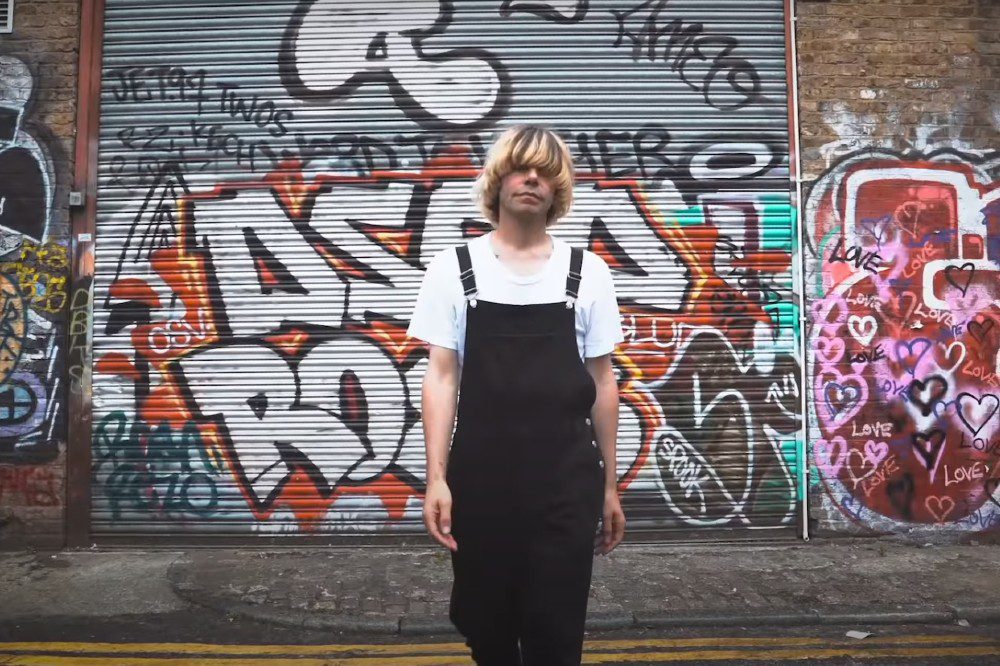Port Lucian Uses Twitter to Curate ‘Trans Musicians and Allies for Change’ Compilation


We all know that the internet can be a dark, scary place. But sometimes, it can also be a catalyst for beautiful projects that inspire change. Twenty-one year old college junior Portia Maidment (of Port Lucian) harnessed the power of the internet and used it to create a new compilation, Trans Musicians and Allies for Change, out via Ztapes on March 5th. The comp is made up of nineteen different artists from around the world, ranging from an acoustic Diners ode to chilling out, to the watery shoegaze of Floor Cry. All proceeds from the cassette will be donated to Trans Lifeline, a 24-hr hotline dedicated to offering support to trans and gender non-conforming folks.
Maidment, a pre-med student at Case Western Reserve University, was first inspired to make this project after taking a class on transgender literature. “That [class] sort of boosted my interest in transgender rights,” says Maidment. “So, I’m actually applying to medical school so I can eventually perform gender affirming surgeries and things like that.”
If you’re wondering how a pre-med student managed to organize an entire compilation album in the midst of a pandemic, you’re not alone. But Maidment said it was actually pretty easy. “I would hit people up on Twitter and ask if they were interested in this comp,” she says. “That’s honestly how I did the whole thing. A lot of people that are on the comp, I don’t know, but because I had support from a label and a cohesive idea, it just sort of came together.” And the power of the internet prevails.
Maidment’s patchwork approach to choosing the artists is evident in the diversity of sound on the record. Whether it’s an acoustic Joni Mitchell track from Philly indie pop band 2nd Grade or a trademark conversational narrative from Fred Thomas, all of the tracks are either previously unreleased demos or written specifically for it. While all of the songs feel vulnerable and personal, some speak specifically to the transgender experience.
Toronto-based indie group Little Kid explores the importance of defining your own identity in “What’s in a Name?” In the most gentle of voices, singer and multi-instrumentalist Kenny Boothby distills the emotional fallout that can occur after a person chooses to change their name. “Oh babe, what’s in a name?/Grew tired of the one that your parents gave/They heard that you wanted to change it like trumpets on judgment day.” Many transgender and non-binary folks experience pushback from friends and family members when announcing their name change, making the transition harder than it needs to be. Aside from the administrative cost of a name change – ranging from $150-$450 – the emotional cost can be huge. Having to remind your friends, family and strangers of your new name over and over again can be emotionally exhausting and invalidate your identity.
Boothby goes on to support the sentiment that these type of dismissive of reactions usually have nothing to do with the person they’re directed at, but rather, a deep-rooted resistance to change or anything outside of what they know. He sings, “Guess they still don’t know how to behave when they can’t place you anywhere.” The song is a validating, soothing reflection on affirming your identity, and an ever so tender fuck off to those who don’t respect it.
Unfortunately, the theme of people not respecting transgender or gender non-conforming folks’ pronouns, identities and safety is a global epidemic. This threat to safety and selfhood can undoubtedly drive people into dark places. And while organizations like Trans Lifeline are an amazing resource for folks that are struggling, sometimes it’s extremely difficult to take the first step in reaching out. In their song “Are You Doing Alright?” Kennedy Freeman of Highnoon addresses anxiety and depression and encourages listeners to reach out to their friends. Freeman says they wrote the song in December, a time when they were especially feeling the effects of being isolated during lockdown.
Although they tried recording the song a few different ways, they say that a voice recording felt the most natural. “Phone audio can feel really familiar and comforting in a way for me too,” says Freeman. “I wanted it to feel like a close friend reaching out leaving a message or something.” The feeling definitely comes across and feels poignant to this project in particular. “This song felt applicable to the compilation,” says Freeman, “specifically the idea of a lifeline people can access when they’re struggling and how important queer friendships and mutual support can be to gender non-conforming people.”
Much like the community it aims to support, Trans Musicians and Allies for Change is colorful, varied, and refuses to fit in any one box or description. The funds from this compilation will go straight to Trans Lifeline, where they will be used to provide direct emotional and financial support to trans people in crisis. Grab yourself a copy – today is Bandcamp Friday, so the streaming platform is waiving their revenue share – and proceed to listen in awe.
You can reach Trans Lifeline at US (877) 565-8860 or Canada (877) 330-6366. The number for the National Suicide Prevention Lifeline is 800-273-8255


